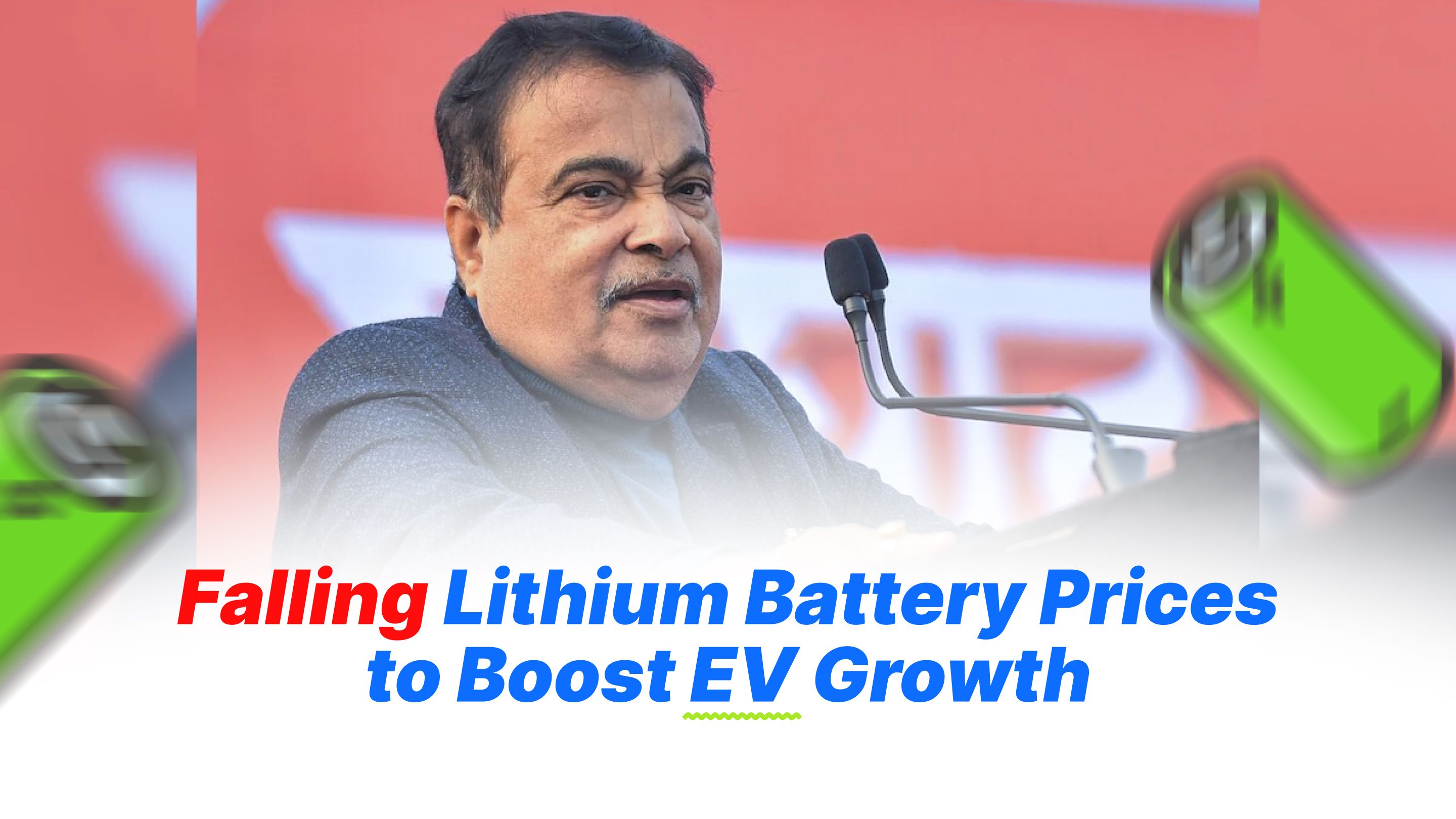Union Minister for Road Transport and Highways Nitin Gadkari has highlighted that the sharp fall in lithium battery prices is set to significantly boost India’s electric vehicle (EV) sector. The cost of lithium battery packs has historically created a major price gap between EVs and their internal combustion engine (ICE) counterparts. However, advancements in battery technology and the increasing adoption of EVs are now driving these prices down.
According to Gadkari, this decline will make EVs more affordable for Indian consumers, promoting widespread adoption. He emphasized that the shift to electric and alternative fuel vehicles is not only environmentally necessary but also an economic imperative. “Pollution is our country's biggest challenge, and a major part of it comes from the transport sector,” he said, underlining the urgent need to transition from fossil fuels to cleaner energy sources.
India currently spends around ₹22 lakh crore annually on fuel imports, creating both an economic burden and an environmental hazard. Reducing this dependency through clean energy adoption is critical for the country’s progress, Gadkari asserted.
India’s Ambition: Global EV Production Leader by 2030
Highlighting the rapid growth of the Indian automobile sector, Gadkari noted that India has already overtaken Japan to become the third-largest auto market in the world since 2014. He projected that by 2030, India will lead the world in EV production, significantly impacting the global automotive landscape.
Gadkari credited the recent drop in lithium-ion battery prices for this positive trend. “The price of lithium, which was $150 per kilowatt a few years ago, has now come down to nearly $100,” he stated. He expressed optimism that further reductions in battery costs will help electric vehicles reach price parity with conventional fuel-powered vehicles, thereby accelerating mass adoption.


